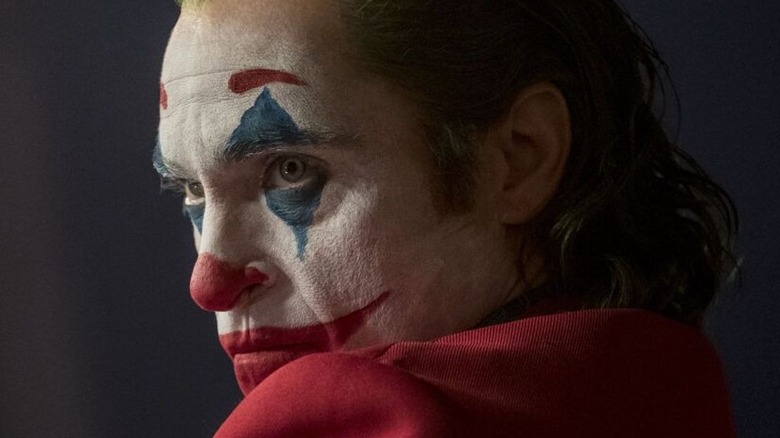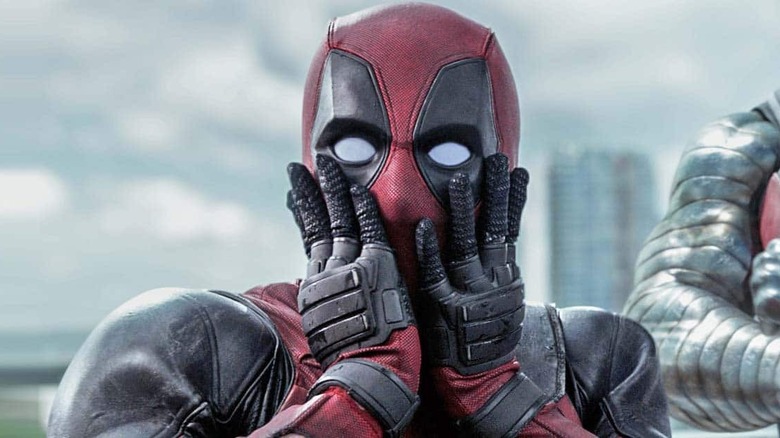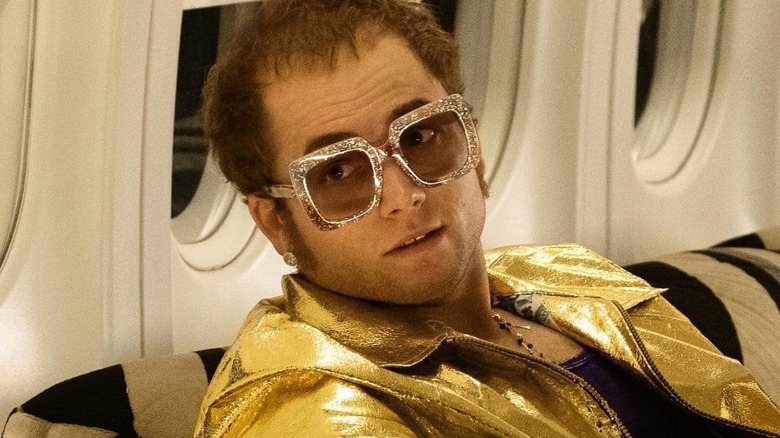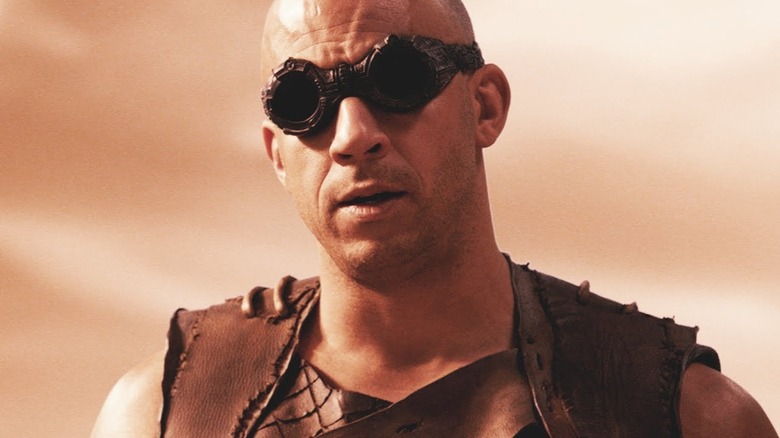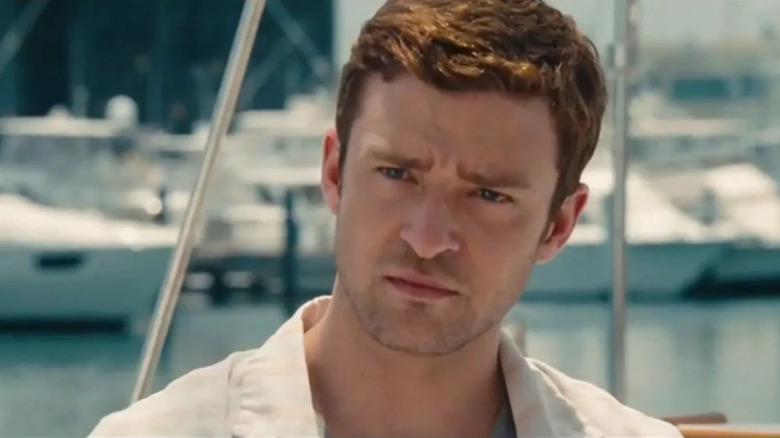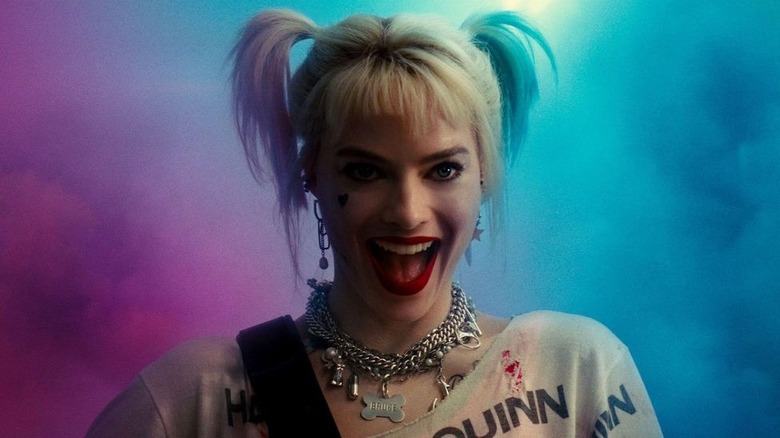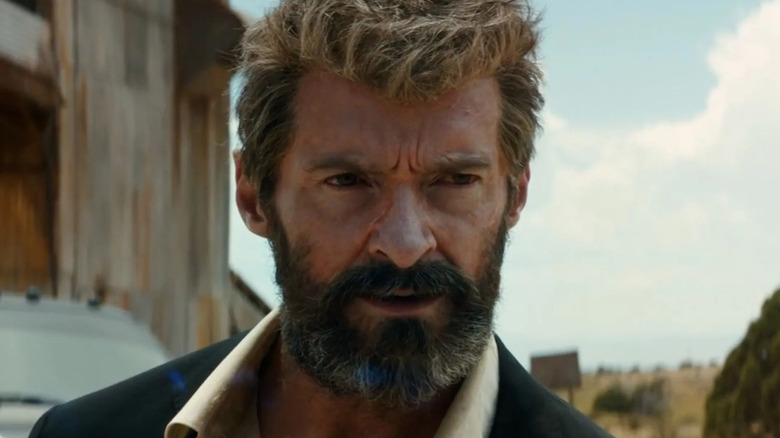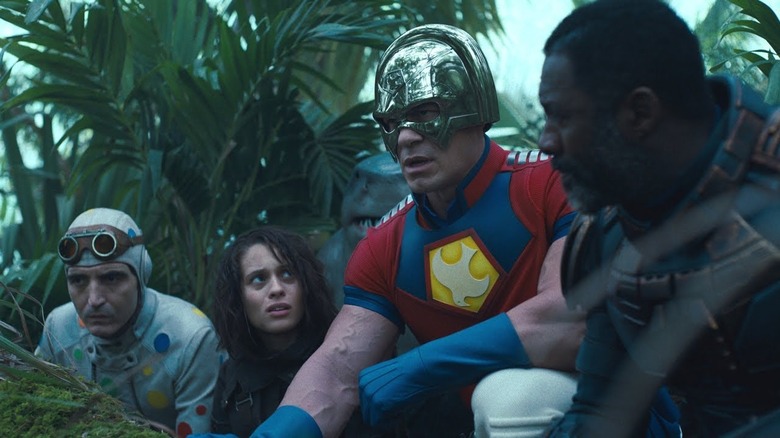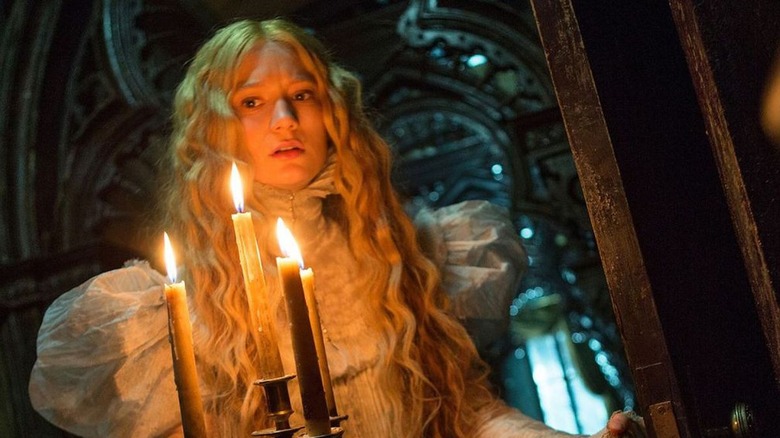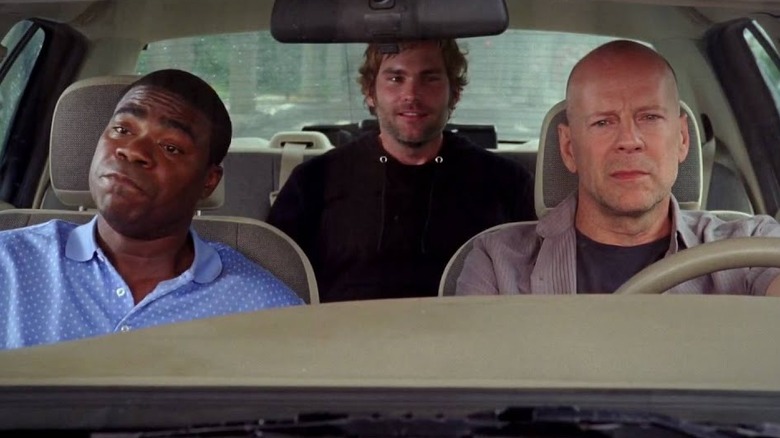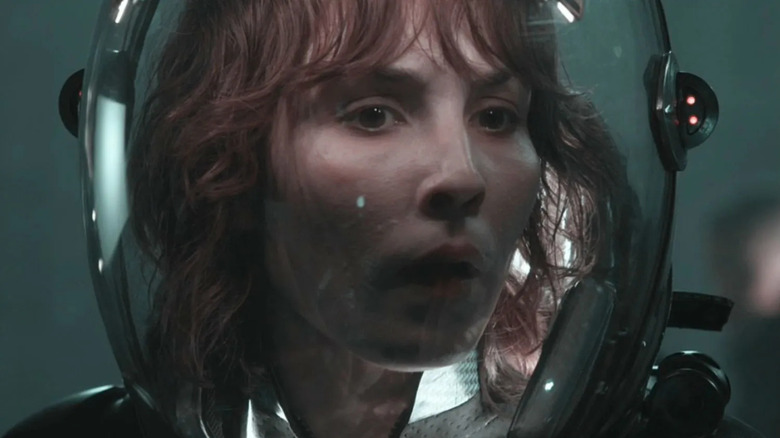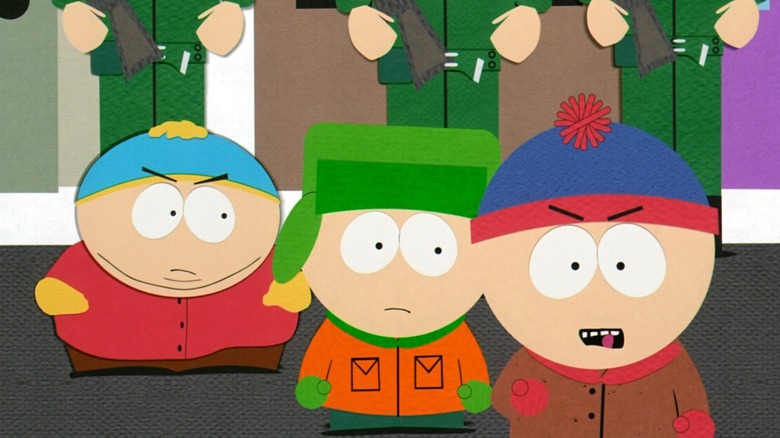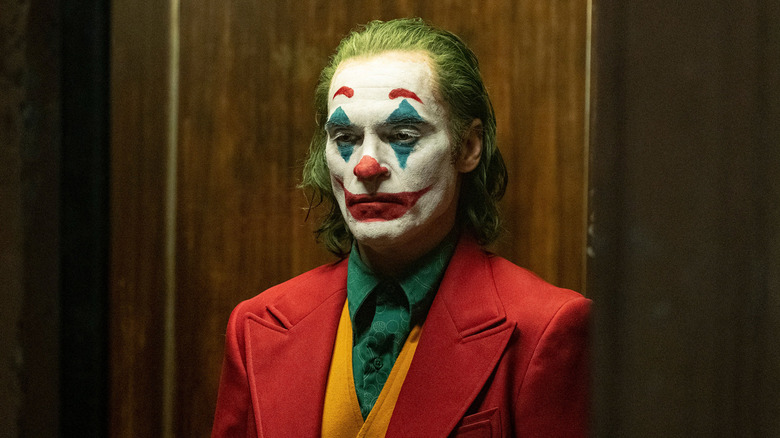R-Rated Movies Whose Filmmakers Actually Pushed For The Stricter Rating
There was a time when Hollywood embraced sex, violence, and the R-rated film. That time was the '80s and early '90s, when R-rated action and horror movies like "Robocop," "Terminator," and "Friday the 13th" became classics. But into the 21st century, as box office totals began skyrocketing, Hollywood had become increasingly leery of R-rated films. Because so many of the biggest hits — like "Titanic," "Jurassic Park," and "Independence Day" — had been more family-friendly, the thought of potentially losing a large chunk of the audience frightened studio bigwigs.
Things have begun to swing the other way around though, with the 2010s seeing a number of R-rated films raking in big blockbuster bucks. But most of those films didn't start out rated R, and it was only after major clashes with studio brass from dedicated filmmakers that those movies were allowed to push the envelope. Directors, producers, and actors alike who believed passionately in their films fought to ensure their creative integrity, and the rating they needed to tell their stories.
Some studios and directors balk at the idea of an R-rating, wanting their film to be seen by as many movie-goers as possible. But we found more than a few who actually pushed for the stricter rating.
Ryan Reynolds wouldn't let Deadpool fans down
It seems like Ryan Reynolds was always at loggerheads with Fox about something when it came to "Deadpool." As far back as 2004, the actor was pushing to star in the film from New Line Cinema, as reported by IGN at the time. A year later, when the rights moved to Fox, Reynolds had to fight to stay onboard, all but begging to make the film happen (also per IGN). Years later, with the studio stalling, Reynolds and his cohorts had to force the studio's hand by intentionally leaking test footage that sent the internet into a frenzy.
But even when Fox started shooting, that wasn't the end of his battle. During production, Reynolds and his crew were fighting to do justice to the raunchy character, who was famous for his dirty jokes and graphic violence. The studio was understandably nervous, as they'd never produced an R-rated "X-Men" film, while more adult-skewing heroes like "Blade" had been successful, but never massive blockbuster hits.
In 2015, Reynolds took to Twitter to acknowledge "fighting the good fight" to get "Deadpool" an R label, even describing something of a shouting match with executives. In January 2016, just a month before release, it was revealed that it would indeed carry the stricter rating. In the end, the film took in nearly $800 million, proving the studio wrong by becoming the highest-grossing R-rated film of all time.
Elton John was all in for Rocketman
When Elton John was shopping around a biopic of his own life, studios he approached were asking for a PG-13 film that would appeal to as wide an audience as possible. But the star himself, who was also a producer, wasn't happy with any such deal. "Some wanted to tone down the sex and drugs so the film would get a PG-13 rating. But I just haven't led a PG-13 rated life," the musician wrote in a 2019 The Guardian op-ed. Well-known for his raucous lifestyle particularly early in his career, he wasn't willing to hold back for film dramatization.
As a result, John had to fight to find a studio willing to keep his biopic a faithful translation of his life to the screen. "I didn't want a film packed with drugs and sex, but equally, everyone knows I had quite a lot of both during the 70s and 80s, so there didn't seem to be much point in making a movie that implied that after every gig, I'd quietly gone back to my hotel room with only a glass of warm milk and the Gideon's Bible for company."
Nevertheless, even after teaming up with Paramount for "Rocketman," starring Taron Egerton, rumors swirled that the studio was pressuring him to have a single scene re-edited to achieve a PG-13 rating (via The Hollywood Reporter). "Nothing but rumors," tweeted director Dexter Fletcher in response, and sure enough, the film landed with an R-rating.
Vin Diesel and Riddick
Though "Pitch Black" wasn't a big hit, star Vin Diesel pushed for a sequel, and thanks to the success of the first "The Fast and the Furious" film, he had the clout to make it happen (per Variety). But what he couldn't get was another R-rating, with "The Chronicles of Riddick" forced into a more digestible PG-13, as he told Collider years later.
Unfortunately, the film was a box office dud, but Diesel's star kept rising thanks to several "The Fast and the Furious" films, and in 2013, he was finally able to round out his trilogy with "Riddick." This time though, Diesel wasn't content to let a studio walk all over him and fought to get the creative freedom he needed to tell his story. Part and parcel to that was an R-rating which would allow him to show off the brutality and viciousness of the Riddick character and his world. Getting that freedom and the R-rating was no easy feat, though, as no studio wanted to touch an R-rated sequel to a PG-13 flop.
According to Diesel himself, he fought for quite a while with the studio, and at the 2013 San Diego Comic-Con, he addressed the struggle to get it. But Diesel never backed down, even when that meant financing the film himself. "I had to leverage my house," Diesel said. "If we didn't finish the film, I would be homeless," but for the actor, it was all worth it.
Justin Timberlake wanted to spice up Runner Runner
High five if you remember the 2013 thriller, "Runner Runner," from director Brad Furman ("The Lincoln Lawyer"), about the unsavory world of high-stakes gambling. If you do remember it, it's likely because of its star-studded cast, led by Ben Affleck, Justin Timberlake, Gemma Arterton, and Anthony Mackie. What you might not know though, is that it was the pop star-turned-actor Timberlake who had to fight for the film's R-rating.
Initially, the film was developed as a vehicle to help the singer become a serious actor. Furman told Yahoo: "We sat down with Justin, met eye-to-eye and talked in terms of the vision of the film creatively and the sort of movie star he is and wants to become." But while Timberlake first wanted to play the villain, he wound up accepting the role of Richie, the Princeton graduate who confronts a gambling kingpin over what he believes is a scam.
Once he agreed to the film, however, Timberlake had some demands of his own and fought to up the movie's sex appeal by making it R-rated. According to Furman, Timberlake took it upon himself to push the studio for the harder rating and made an "elaborate 45-minute pitch" that got finally got them on board.
Margot Robbie went hard for Birds of Prey
It was the PG-13 film "Suicide Squad" that gave fans their first glimpse of comics icon Harley Quinn in live-action, and she didn't disappoint. But when she was due for a return in "Birds of Prey," star Margot Robbie wasn't willing to cut corners. Looking to go darker and totally off-the-wall, Robbie — who also served as producer — fought for an R-rating for the colorful follow-up.
But despite recent R-rated blockbusters like "Deadpool," "It," and "Joker," the studio wasn't easy to convince, mostly because those movies hadn't arrived yet when she first made her stand. "Margot had pitched it as an R-rated movie," Cathy Yan, the movie's director, told Polygon. "This was many, many, many years ago, and certainly before the success of 'Deadpool.' She always wanted it that way, and we kind of leaned into it. I loved it." While she may not have had anything specific in mind for what she'd do with such a strict rating, it was clear Robbie didn't want a studio-mandated PG-13 to stand in the way of unfettered creative freedom.
"[The R rating] really allows us to show an unfiltered version of Harley Quinn," Yan said. "She gets to tell the jokes that she always wanted to tell, say the words that she wants to say, and she's also someone that is very capable of violence ... I think it was really something that gave us a lot of freedom as filmmakers."
James Mangold wanted Logan unleashed
When Hugh Jackman first debuted as Wolverine in the 2000 superhero movie, "X-Men," he was an instant fan favorite, so getting his own spin-off series was probably inevitable. It came in 2009 with the lackluster "X-Men Origins: Wolverine," and was followed by the 2013 installment, "The Wolverine," which was a marked improvement but still met with mixed reviews. Both films though were PG-13, as the "X-Men" franchise had always been more family-friendly. But when director James Mangold wanted to close out a trilogy with Jackman, the two believed strongly that the key to delivering a truly great Wolverine movie was an R-rating.
With such a designation, the third movie, "Logan," would finally be able to embrace the vicious nature of the clawed hero, and allow him to unleash his primal rage. The blood-soaked violence and foul-mouthed, cigar-chomping mutant were off the table with a PG-13 label, so Mangold fought with Fox to be able to go further. While early efforts may have been a struggle, Mangold was given a massive gift when "Deadpool" proved that R-rated movies could do blockbuster business.
But the success of "Deadpool" wasn't the only thing that convinced them, as there were still concerns that a rated-R film would limit its box office. In fact, according to Eric Vespe of Ain't it Cool News, the only way they could get Fox to fully commit to a darker, more adult film was for Jackman to take a pay cut.
James Gunn had his R-rated sights on Suicide Squad
If you hadn't noticed, comic book movies are a common subject that filmmakers have to push for when they want an R-rating. It makes sense considering the intended audience for superheroes tends to be children and families, so anything beyond a PG-13 has the potential to cut off a large chunk of movie-goers. One film that took the risk though was 2021's "The Suicide Squad," the R-rated sequel to David Ayer's 2016 effort, and it's all because director James Gunn refused to do it any other way.
What makes it all the more curious is that Gunn had already successfully turned a superhero comic book into a hit blockbuster franchise with "The Guardians of the Galaxy." So after a minor scandal that saw Disney cut ties with him briefly, Warner Bros. jumped at the chance to work with him on the super-team sequel. The only catch was apparently that he wanted the freedom that comes with an R-rating. Though it doesn't sound like it was a long fight — that's just how badly the studio desired his services — it's clear from behind-the-scenes rumblings that WB wasn't 100% comfortable with the decision.
"There's no way that you could have made this movie in the vision that James had without it being an R," producer Charles Roven told CinemaBlend. "You wouldn't be able to release it any other way. And it was something that Warner Brothers had to digest."
Guillermo Del Toro bled for Crimson Peak
Director Guillermo Del Toro has been trying to get a movie adaptation of the HP Lovecraft classic, "At the Mountains of Madness," off the ground for nearly 20 years, and one of the biggest obstacles has been Hollywood's reluctance to allow him an R-rating for the project (via Collider). But one film he did win the fight for the stricter rating on was 2015's "Crimson Peak," an original Lovecraftian tale he penned himself. Starring Mia Wasikowska, Jessica Chastain, and Tom Hiddleston, it follows a writer with the ability to commune with the dead.
To tell his story properly though, he needed the ability to portray envelope-pushing sex and gore, which meant an R-rating, it wasn't easy to secure one from the studio. Though hesitant, Legendary Pictures was open to discussing the possibility of giving it the R label, but initially refused to give him a big budget to go along with it, and that caused problems for Del Toro. He told the LA Times ahead of the movie's premiere that the studio loved the script, but offered him a much bigger budget if it were PG-13. If it was R, the budget would be far smaller, so either way he would face limitations on his story.
"I wanted the luxurious [budget], but I wanted the R," Del Toro acknowledged. "So I was tiptoeing into balancing that it stayed an R, but it was luxurious enough to be an old-fashioned production."
Kevin Smith almost copped out of Cop Out over an adult rating
Filmmaker Kevin Smith has had a rocky career. He shot to fame in 1994, becoming a darling of the indie circuit for his debut film, "Clerks." He's since directed more than a dozen further films, including classics like "Mallrats" and "Dogma," and all of his films have been stories he created and wrote himself. All that is except his 2010 action-comedy, "Cop Out," a buddy cop film starring Bruce Willis and Tracy Morgan.
The film was a major bomb critically and commercially, and what makes it all the worse is that Smith has been more than open about what a nightmare it was to produce, even leading to a well-publicized feud with Willis. But one part of the difficulty in making the film was the simple act of convincing the studio to film it as an R-rated comedy. For Smith, rated-R comedies were his bread and butter, having made his name on dark comedies populated by foul-mouthed malcontent characters like Jay and Silent Bob.
The studio was apparently uninterested in anything that raunchy or violent though, and things looked so bad at one point that Smith later admitted on Twitter to taking a pay cut just to secure the R-rating. Any lesser label just wasn't an option. "You would've felt the PG13," he added in a lengthy Twitter thread (compiled by CinemaBlend). Try to squeeze it into a PG-13 and you lose most of the comedy."
Ridley Scott clashed with Fox over his Alien prequels
In 1979, director Ridley Scott produced the seminal sci-fi-horror masterpiece, "Alien." Though it kicked off a long-running franchise, Scott himself wouldn't return to direct any of the sequels, replaced by the likes of James Cameron, David Fincher, and Jean-Pierre Jeunet. But in 2012, Scott came back to the saga for a pair of prequels, "Prometheus," and "Alien: Covenant." While every previous installment had been rated R though, the studio somehow felt these two new movies shouldn't be, and Scott had to fight to get it back.
In 2010, with Scott finally agreeing to return to the director's chair after more than 30 years, 20th Century Fox didn't make his comeback easy. It was widely reported by the likes of AICN and others that Scott and the studio were battling over a proposed budget and the final rating. It's said that Scott was looking for a whopping $250 million and an R-rating, while the studio wanted a budget much lower and a PG-13 label. Things were reportedly so tenuous between the two sides that there was a real chance the entire project could fall apart, as the project stalled over the impasse.
Ultimately, Scott was finally given his R-rating, but couldn't get close to what he wanted for the budget and instead came in at around $125 million (according to The Numbers). The film still looked incredible, though that didn't help the decidedly mixed reaction from movie-goers.
Matt Stone and Trey Parker dug in for South Park: Bigger, Longer, and Uncut
It's not uncommon for TV shows to make the leap to the big screen, and when they do, to go beyond what's allowed by broadcast TV standards. When it comes to a show that already had a reputation to push the bounds of acceptability though, you might be able to understand Paramount executives' unease at allowing "South Park" to get an R-rating. But that didn't stop the show's creators, Trey Parker and Matt Stone, from digging in their heels and refusing to do anything less.
In 1998, with the series a smash hit for Comedy Central, "South Park" began its journey to theaters, and in April of that year, a report from E! Online declared that Parker and Stone had finally secured an R-rating. "They really wanted to be able to go beyond the South Park television show," Comedy Central spokesman Tony Fox told TV Guide, according to E!. "They really fought hard for and won the right to make an R-rated movie."
The article does ask what the movie could possibly achieve that the show already hadn't, where sexually suggestive dialogue and scenes of human feces were commonplace. Well, we know the answer today, as the entire plot revolves around the use of repeated obscenities. But it wasn't just bad words, as excessive violence and sex jokes riddle the film, making it plainly obvious why it needed its R-rating.
Todd Phillips fought for Joker
In hindsight, allowing Todd Phillips to produce an R-rated movie based on the iconic Batman villain seems like it would be a no-brainer. In 2019, "Joker" broke the record for highest box office gross for an R-rated film, beating the "Deadpool" sequel (per Variety), and it remains the only film with an adult rating to crack a billion dollars. But believe it or not, Phillips had to endure an agonizing process to get its R-rating, as the studio resisted his decidedly adult take on the Clown Prince of Crime.
"It was a yearlong process from when we finished the script just to get the new people on board with this vision," Phillips told the LA Times. According to the director, Warner Bros. had serious reservations about making such a dark film about a children's icon. "There were emails about: 'You realize we sell Joker pajamas at Target.' There were a zillion hurdles, and you just sort of had to navigate those one at a time."
But Phillips never gave up, and despite the anguish he endured to see his dream come to life, it all worked out. "I would curse them in my head every day. But then I have to put it in perspective and go, 'They're pretty bold that they did this.'" The result was an Oscar-winning triumph, with star Joaquin Phoenix taking home the trophy for best actor, and a box office haul that the studio could never have expected.
